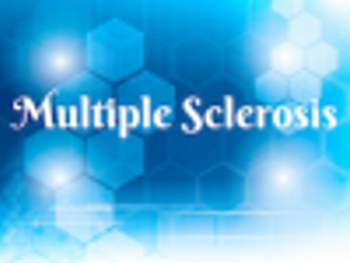
Rising drug prices for disease-modifying therapies resulted in substantial increases in spending for Medicare beneficiaries with multiple sclerosis.

Rising drug prices for disease-modifying therapies resulted in substantial increases in spending for Medicare beneficiaries with multiple sclerosis.

Patients with progressive multiple sclerosis who were placed on the Wahls diet, which is high in fruits and vegetables, found to experience improved fatigue levels.

The 1st annual International Congress on the Future of Neurology will be held on September 27-28, 2019 in New York City, featuring a rigourous agenda of presentations, question and answer sessions, and lightning rounds highlighting topics across the breadth of neurology.

The 1st annual International Congress on the Future of Neurology will be held on September 27-28, 2019 in New York City, featuring a rigorous agenda of presentations, question and answer sessions, and lightning rounds highlighting topics across the breadth of neurology.

Defining multiple sclerosis helps pinpoint what therapies work best for patients.

Eculizumab (Soliris) is indicated for adult patients with neuromyelitis optica spectrum disorder who are anti-aquaporin-4 antibody positive.

Top news of the day from across the health care landscape.

Patients with multiple sclerosis who switched disease-modifying treatments at least twice had a higher relative risk of developing cancer.

Top news of the day from across the health care landscape.

Investigators aim to develop cellular models to mimic the biological processes responsible for the onset of multiple sclerosis.

Obesity may increase severity of disability in patients with relapsing-remitting multiple sclerosis.

Statins can benefit patients with secondary progressive multiple sclerosis for reasons unrelated to their cholesterol-lowering effects.

New data show that higher exposure to ocrelizumab (Ocrevus, Genentech) correlated with lower B-cell levels and lower rates of disability progression.


Compared with interferon beta-1a, ozanimod reduced less cortical grey matter volume in patients with relapsing forms of multiple sclerosis.

An investigational therapy for amyotrophic lateral sclerosis has shown promise in slowing the progression of the disease in patients with a genetic form of the disease.

There is no cure for multiple sclerosis, but there are more than a dozen treatment options that aid in reducing the severity of the disease.

In the first and largest study of its kind, researchers from the University of British Columbia (UBC) and Vancouver Coastal Health Research Institute aimed to assess mortality associated with beta interferons for the treatment of MS.

The study authors believe that the modification of teriflunomide and the development of new DHODH inhibitors is urgent for drug-resistant epilepsy patients

Patients taking beta interferons for at least 6 months had a reduced mortality risk compared with patients who did not take the drug.

The study authors believe that the modification of teriflunomide and the development of new DHODH inhibitors is urgent for drug-resistant epilepsy patients

Sobetirome was shown to stimulate myelination in mice without the severe adverse effects commonly associated with thyroid hormone therapy for multiple sclerosis.

Approximately 1 in 5 patients in a study were misdiagnosed with multiple sclerosis before being referred to treatment centers.

Brain stem cells of patients with primary progressive multiple sclerosis appear to age faster.

Cladribine (Mavenclad, EMD Serono) is the first oral multiple sclerosis drug to demonstrate 2 years of proven efficacy with a maximum of 20 days of treatment.